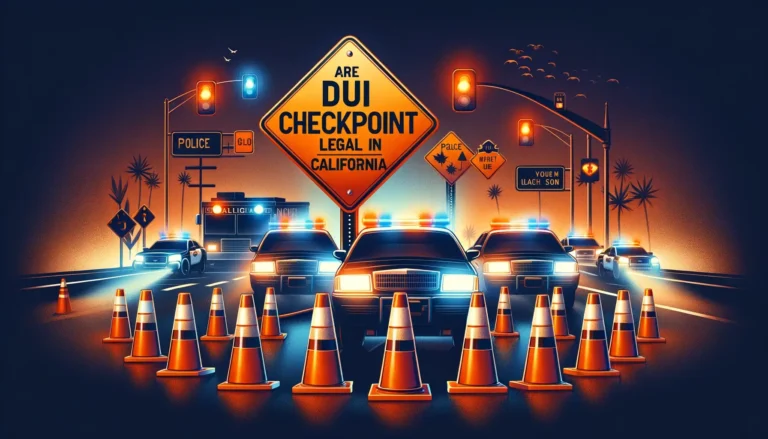Is Mace Legal in California? The Definitive Guide

Can you legally carry mace or pepper spray for self-defense in California? Yes, but there are specific rules you must follow. This article provides an in-depth look at the laws surrounding mace possession and use in the state.
Many Californians, especially in cities or remote areas, want a self-defense option. Mace, or pepper spray containing oleoresin capsicum (OC), has become popular for temporarily disabling attackers or aggressive animals. However, you need to know the laws to avoid legal issues.
This article covers:
- California’s mace laws
- When mace is legal for self-defense
- Restrictions on possession and use
- Proper usage and labeling requirements
- Consequences of improper use
- Self-defense alternatives to mace
By the end, you’ll understand the regulations around mace in California. You’ll know how to use it legally and responsibly for self-defense.
Understanding California’s Mace Laws
In California, mace (or pepper spray) falls under the category of “tear gas weapons” according to the state’s Penal Code. The relevant laws governing its use and possession are outlined in Sections 22810 and 12403.7 of the California Penal Code.
The legal definition of “tear gas” encompasses all liquid, gaseous, or solid substances intended to produce temporary physical discomfort or permanent injury through being vaporized or dispersed in the air. This includes oleoresin capsicum (OC), the active ingredient in mace and pepper spray products.
When Is Mace Legal for Self-Defense in California?
Using mace is considered legal self-defense in California under certain circumstances. According to the law, you can purchase, possess, or use mace and other tear gas weapons for self-defense purposes, provided you meet the following requirements:
Reasonable Belief of Imminent Danger
You must have a reasonable belief that you are in imminent danger of being killed, seriously injured, or unlawfully touched. This means that the threat of harm must be immediate, and your use of force is necessary to prevent that harm.
Necessary Force
The force used (in this case, mace) must be reasonably necessary to stop the danger or threat. You cannot use excessive force beyond what is required to defend yourself.
Castle Doctrine
California follows the “Castle Doctrine,” which allows residents to use force, including deadly force, against intruders who unlawfully enter their homes. This doctrine assumes that residents have a reasonable fear of death or serious injury when an intruder breaks into their home, and they have the right to defend themselves without a duty to retreat.
It’s important to note that the use of mace must be strictly for self-defense purposes. Using it in any other context, such as retaliation or revenge, would be considered illegal and could result in criminal charges.
Restrictions on Mace Possession and Use
While mace is legal for self-defense in California, there are certain restrictions on who can possess and use it. The following individuals are prohibited from purchasing, possessing, or using mace or tear gas weapons:
- Persons convicted of a felony or any crime involving assault (in California or any other state)
- Persons convicted of misusing tear gas or mace (in non-self-defense situations)
- Minors under the age of 18 (except minors over 16 with parental consent)
- Individuals addicted to narcotic drugs
Additionally, there are limitations on the type of mace or tear gas weapons you can possess. In California, it is illegal to purchase, possess, or use any tear gas weapon that:
- Expels a projectile
- Expels tear gas by any method other than an aerosol spray
- Contains more than 2.5 ounces net weight of aerosol spray
These restrictions are in place to ensure that mace is used safely and responsibly for self-defense purposes only.
Proper Mace Usage and Labeling Requirements
If you plan to carry mace for self-defense in California, it’s essential to follow the proper usage guidelines and labeling requirements. Here’s what you need to know:
Labeling Requirements
All mace or pepper spray products carried in California must be labeled with a warning stating that the product is intended for self-defense use only. The label should also include:
- Usage instructions
- First-aid information
- Shelf-life or expiration date
- Legal consequences for improper use
Failure to comply with these labeling requirements could result in legal consequences.
Proper Usage Techniques
When using mace for self-defense, it’s crucial to follow proper usage techniques to maximize its effectiveness and minimize potential harm to bystanders or yourself. Here are some general guidelines:
- Hold the canister at arm’s length and aim for the attacker’s eyes and face.
- Spray in short bursts, allowing the mace to take effect before reapplying.
- Avoid using mace in confined spaces or against the wind to prevent blowback.
- After using mace, seek medical attention if needed, and thoroughly wash any affected areas with soap and water.
It’s also essential to practice with inert mace trainers to familiarize yourself with the proper usage techniques and improve your aim and handling skills.
Consequences of Improper Mace Use
While mace is legal for self-defense in California, misusing it can result in serious legal consequences. Improper use of mace or tear gas weapons can be charged as either a misdemeanor or a felony, depending on the circumstances.
If convicted of misusing mace, you could face the following penalties:
- A fine of up to $1,000
- Imprisonment for 16 months, 2 years, or 3 years
It’s important to note that claiming an empty or inoperable canister is not a valid legal defense for improper mace use in California.
Alternatives to Mace for Self-Defense
While mace is a popular self-defense tool, it’s not the only option available in California. Depending on your circumstances and preferences, you may want to consider other legal self-defense weapons or tools:
Stun Guns and Tasers
Stun guns and tasers are legal in California for self-defense purposes, but there are restrictions on who can possess them. You cannot own a stun gun or taser if you are a convicted felon, a minor under 16, addicted to narcotics, or have a prior conviction for misuse of a stun gun.
Knives
In California, you can legally carry folding knives (such as pocketknives or Swiss Army knives) as long as they are in the folded position. However, switchblades and concealed dirks or daggers are illegal.
Guns
California has strict laws regarding firearms, but most adults aged 21 and over can legally purchase, own, and possess certain types of guns (such as handguns and shotguns) for self-defense purposes. However, you must pass a background check, complete a safety course, and obtain the necessary permits.
Personal Alarms
Personal alarms are legal in California and can be an effective self-defense tool. These small devices emit loud, attention-grabbing sounds when activated, potentially deterring attackers and alerting nearby individuals.
When choosing a self-defense tool, it’s essential to consider your personal circumstances, level of training, and comfort with handling different devices. Additionally, ensure you familiarize yourself with the specific laws and regulations surrounding the possession and use of any self-defense weapon or tool in California.
Conclusion
In conclusion, mace (or pepper spray) is legal in California for self-defense purposes, but it’s crucial to understand and comply with the state’s regulations. These include restrictions on canister size, labeling requirements, and prohibited groups from possessing or using mace.
Improper use of mace can result in serious legal consequences, including fines and imprisonment. It’s essential to use mace only in situations where you have a reasonable belief of imminent danger and when the force used is necessary to defend yourself.
If mace doesn’t suit your self-defense needs, consider exploring other legal options such as stun guns, knives, guns, or personal alarms. However, it’s vital to familiarize yourself with the specific laws and regulations surrounding these self-defense tools in California.
Remember, staying informed and responsible is key to ensuring your safety and avoiding legal issues. If you have any doubts or concerns, it’s always best to consult with a legal professional or law enforcement authorities for guidance on self-defense laws in your area.






